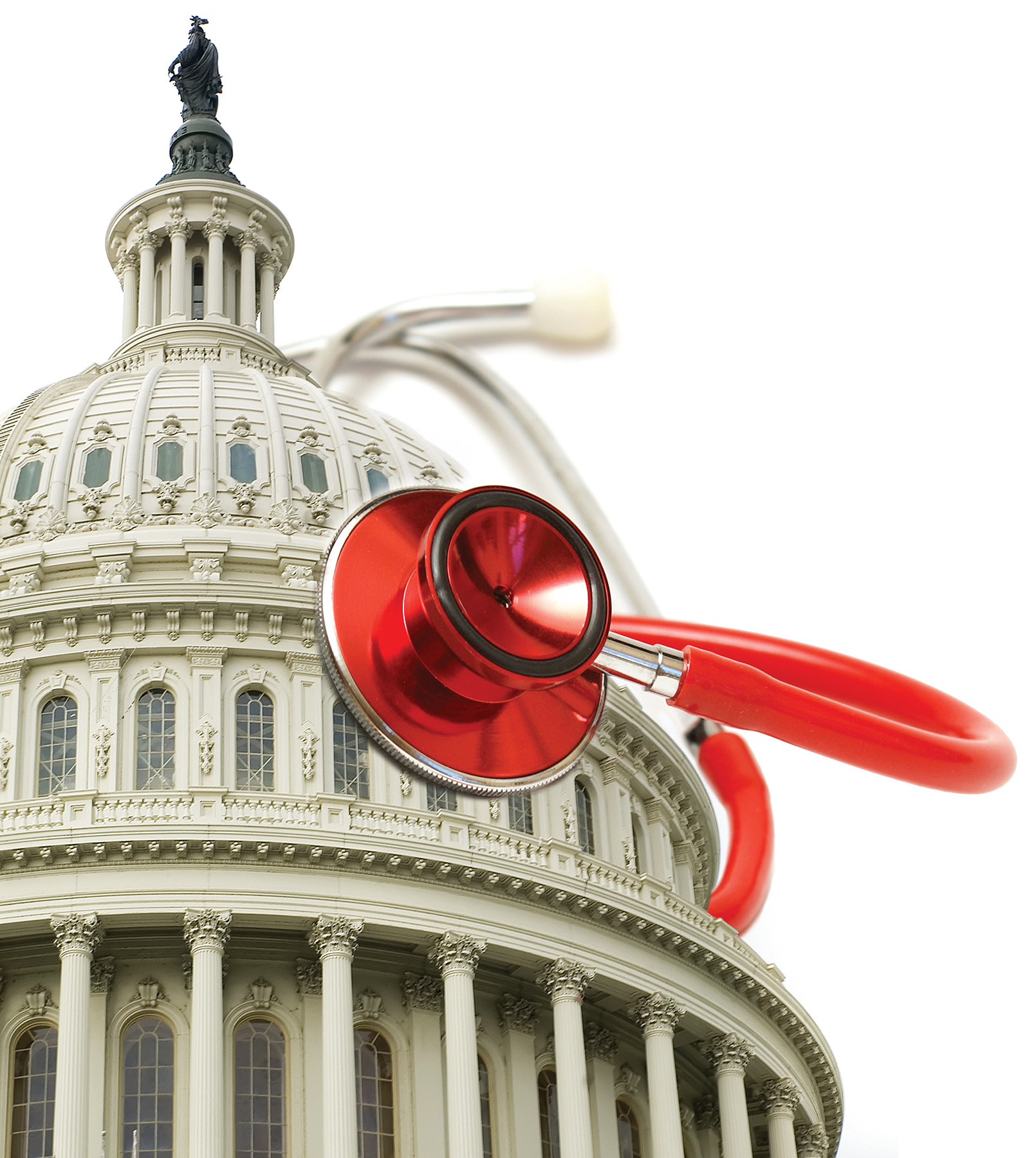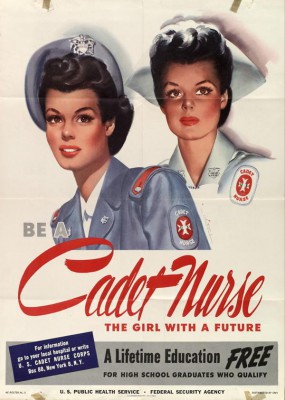
Finance Your Nursing School Education with Scholarships
Often, minority nurses are encouraged to pursue more education so that they can advance in their careers. Going into deep debt to finance that education, though, isn’t always a smart move. Fortunately, there is scholarship money available for nurses who go after it. Unfortunately, the hunt for funds can be daunting.
Six scholarship-savvy nursing students, financial aid pros, award grantees, and thought leaders offer their advice and insights. Follow it and win the funds you deserve. It works for scholarships (e.g., merit-based awards), grants (e.g., needs-based awards), and fellowships (for graduate students, and either merit- or needs-based).
 Austin Nation, RN, PHN, MSN
Austin Nation, RN, PHN, MSN
PhD student at University of California–San Francisco School of Nursing
What’s your greatest scholarship success?
I just did a workshop, a “Scholarships 101,” because people found out that I was able to pay for most of my graduate education, and now my PhD, with awards. In the past, I garnered enough scholarship monies to get the down payment for a house! If students are also interested in teaching, there’s a lot of need and money available. I now have a stipend that’s routed directly to me, which is ideal. Before that, I was using credit cards to pay for financial aid. Remember, besides tuition and books, there are living expenses you need to cover, like housing and food.
What are the best resources for finding scholarships for students?
Look for departmental, college-wide, and university-wide scholarships. There’s a goldmine at the local level, and then at the professional and cultural organizations. Corporations, like Pepsi and Coke, may have scholarships. Also, go after scholarships for people with disabilities—which could mean being the first generation in your family to go to college.
Do you have any advice for nursing students about the whole process?
Just mining this stuff is almost like a little part-time job. The scholarship application period is in April of each year. Cast a wide net; my goal was always to do 10 to 15 applications a year, which seemed to yield the best results. Recently, the fifteenth application I sent out was the one I got. It was federal funding for a minority student that’s good for five years. (It’s capped at $30,000 or $40,000 a year, based on the state.) I’m graduating in June of next year and going back to get additional certification. This program will pick up the tab, so why not?
Are there any tactics you employ to stand out from the competition?
The cornerstone of an application is the personal statement. What makes me a good applicant? Who am I? What have I done in the community? My specialty area and who I am as a person are very specific. I’m a male nurse. I’m a queer nurse. I’m a nurse doing work in HIV. Disclosing my background and status isn’t easy. I’m the first person in my family to go to college. My dad has only a fourth-grade education. That may be embarrassing, but that’s who I am. That’s where I came from. It’s a reflection of my character and how I’ve dealt with adverse circumstances.
 Jake Schubert, RN, BSN
Jake Schubert, RN, BSN
Founder of the nurse licensure prep site www.nursity.com and a travel nurse
What’s your greatest scholarship success?
I won a scholarship provided by a woman’s club made up of wives of university faculty. Very few men applied. When shown a list provided by the university of available scholarships, most men would say, “Oh, it’s a woman’s club…” But you have to put yourself out there—the club was for women, but their scholarship was for anyone. They were glad I applied because most men don’t, and guess which application stood out?
What are the best resources for finding scholarships for students?
Do ask what is available at different institutions you’re looking to attend. But don’t stop there. I know a student who got a 50% offer at a private school and a 100% ride at a state school. He wrote the private school a polite letter, explained his preference and the situation, then asked, “would you consider giving me 100%?” They gave it to him and called his mom to say how amazing he was, and how they’d never had anyone ask for more aid before.
Reach out to organizations of various kinds. Many have scholarships, though they might not be publicized. They may be discretionary, instead, based on a faculty member’s recommendation. I won a university scholarship that wasn’t even listed and wasn’t available to the public—all based on my relationships with the faculty at my university.
Do you have any advice for nursing students about the whole process?
You have to get in the game. Many people are reluctant to apply because they’re afraid of failure. A lot of times people think they’re going to get a full-ride scholarship that will take them all the way through school. It doesn’t work that way. Most are only $500 to $3,500. Think not of winning one, but of winning lots of scholarships; they add up over time. Once you apply for one, it’s easier to apply for the second, and when you get to the fifth application it’s almost a piece of cake. You can just recycle parts of other applications.
Are there any tactics you employ to stand out from the competition?
Look for what makes you remarkable and highlight that trait or activity. It doesn’t have to be the standard nursing things. One applicant I know used to be a music producer, and that stood out. But be careful not to spread your message too thin—pick one or two activities and dive in; invest time and energy in those. Take a leadership role and show your passion and commitment. Focus on one really rich experience on your application and weed out the minor ones. For example, when I was in nursing school I had written an article to highlight the work of a physician I admired and worked with. At my first job interview, that magazine issue was on the nurse manager’s desk. I casually mentioned, “Have you read my article…?” At my second interview, another manager greeted me with “So… we read your article.” That made a remarkable difference. That’s not why I wrote the article, but it showed that I’m engaged in the community. I’m not somebody who will take the money and run and never be seen or heard from again.
 Brittney Wilson, RN, BSN
Brittney Wilson, RN, BSN
“The Nerdy Nurse” author, social media influencer, and blogger at thenerdynurse.com
Do you have any advice for nursing students about the whole process?
My best piece of advice for nursing scholarships is to apply for everything. You often hear people joke to “vote early and vote often.” This actually does apply to scholarships. Apply early and apply often. Even if you’re not 100% sure you’re the perfect fit for the scholarship or don’t feel you meet the right demographics, go ahead and give it a shot. Unless the guidelines specifically exclude you, then you should assume they include you.
Are there any tactics you suggest to stand out from the competition?
I would also suggest to apply to scholarships that aren’t just for nursing students. Because nurses hold such a strong place in many hearts and are constantly voted as the most trustworthy profession, you may have an edge over other candidates for more general scholarships. You’ll also likely be competing with fewer nursing students and have an ability to stand out. Applying for scholarships that you wouldn’t think would be a good fit could actually give you an edge and let you stand out against other applicants.
 Donna Cardillo, RN, MA
Donna Cardillo, RN, MA
“The Inspiration Nurse” keynote speaker, author, and columnist at donnacardillo.com
What’s your greatest scholarship success?
Free money is the best kind of money. Some scholarships will even give you money for living expenses. I was going to have to drop out, but I got that scholarship for the next year. I was recommended for the scholarship by a professor at school. Community and women’s groups sometimes contact the school and ask for the name of a deserving student. In this case, they wanted to find a community leader. I’d talked to this professor about my personal and financial situation, so she recommended me. Share your story. People want to help and support you.
Do you have any advice for nursing students about the whole process?
The more you apply, the better your chances of getting money. Every scholarship has different criteria. Some are for entry to practice, some are for advanced levels. Don’t get hung up on meeting all the criteria. You have to cast your net wide if you’re going to catch some fish. Try ethnic community associations, like the Hispanic American Club, in addition to ethnic nursing associations. It’s worth making the scholarship search a part-time job. Contact your state chapter of the American Nurses Association and ask if there’s anyone there who can help you with scholarship information. Ask at the financial aid office, too. Ask a librarian for resources, such as the current edition of Peterson’s Scholarships, Grants and Prizes. Remember, if you don’t ask, you don’t get. Make as much effort to apply for scholarships as to apply to school.
Are there any tactics you suggest to stand out from the competition?
Read the questions carefully and tailor your application to match, each time. Learn how to write a good essay. They don’t know you, so you have to convince them. Don’t hesitate to share your difficulties; for instance, a background as a single parent or with an illness. People want to be touched, moved. “Oh, I don’t want to go into that,” students say, but it’s important to tell your personal story.
I know many people who’ve financed their whole education through scholarships and grants. When I went to graduate school, I had literally no money. I presumed I’d apply for student loans and pay them off the rest of my life. I applied for a scholarship that I didn’t qualify for because I wasn’t taking enough credits. (I was only taking one course a semester.) In my application, I explained that I wanted to take a full course load but had to work and care for a family, so I couldn’t fit it all in without financial support. I was awarded a special scholarship that year because of my circumstances.
 Cynthia J. Hickman, RN, BSN, MSN/Ed
Cynthia J. Hickman, RN, BSN, MSN/Ed
PhD student, established the Cynthia J. Hickman “Pay It Forward” Nursing Scholarship
What’s your greatest scholarship success?
I received the Johnson & Johnson [Community Health Care Leadership] award while working for St. Luke’s hospital [in Houston, Texas]; someone suggested I “pay it forward.” My way of making the world a better place is to help others complete their education toward the goal of becoming a registered nurse. Students must have the first two years, and the scholarship is for the last two. The scholarships at the national and local Black Nurses Association are for $1,000; however, they have not been active the past few years. When my foundation application and nonprofit status has been complete, I plan to make them available back to my organizations. The scholarship at St. Luke’s is self-renewing, for $2,000 or whatever is the interest for that year. Recipients are encouraged to pay it forward when they graduate. I want to expand the scholarship to high schools—Houston has health services focused schools and some are already offering college courses.
Do you have any advice for nursing students about the whole process?
The scholarship search turns many people off—they see the scholarship application and what they ask for, put it aside and say “No.” I tried to make it easier to apply by talking to other schools and looking at their guidelines. Once I ascertained that, I knew I didn’t have to include certain questions, for instance GPA. Nursing schools require a 2.5 GPA.
Are there any tactics you suggest to stand out from the competition?
Do a dummy application before the real one. You have to be able to write. It’s not as hard to write if you pick your passion. If I applied for an engineering degree I’d have difficulty, but I’m a nurse so I can write with passion about that. Examples are everything. I always wrote about early on, when I was a lifeguard, and saved a life. That job turned into my career in nursing. Safety is part of both fields; be someone who thinks beyond the obvious.Q: Are there any tactics you employ to narrow down applications for a winner?
Be dedicated, focused, and pay attention to instructions—that’s very important. Complete the application. As a nurse, you have to complete things. Someone’s life is at stake; you can’t half do it. I’ve heard about application review committees who break up into teams. One team looks only for completions. Another team looks only for errors. They may start with 3,000 applications, but quickly narrow it down to 150. Each scholarship committee has its own specific criteria. Mine is community service; you have to show a history of community service. If you’re a pediatric nurse, that’s great, but then do something else outside of that. If they’ve had breast cancer, then volunteer for that cause. Now you’ve added another layer of expertise based on your personal experience and passion.
 Maria Elena C. De Guzman
Maria Elena C. De Guzman
Student funding coordinator at University of California–San Francisco School of Nursing
What’s your greatest scholarship success story?
The greatest success story I’ve encountered so far is from one of our students who is a single parent with a daughter who is also in school. She’s a minority student and is the first in her family to attend a university. She came to my office to get counseled on how to improve on her scholarship applications since she has not been very successful. After that visit, she received a number of awards. Her success was about not so much the amount of scholarship money she received, but how she managed to overcome the personal challenges in her life, with funding being one of them. She was then able to focus more on her studies.
What are the best resources for finding scholarships for students?
Start with your school. Then there are professional organizations, employers, and organizations related to cultural or ethnic backgrounds. I don’t know if something similar is available for undergraduate students, but the UCSF COS [Community of Science] Pivot database that we offer our graduate students is one of the best and most comprehensive. It covers funding opportunities for most disciplines from federal agencies, and private U.S. as well as international foundations. It alerts users every time a new funding opportunity comes up related to their discipline or area of interest. It also has a tool for research networking—quite cool!
Do you have any advice for nursing students about the whole process?
Make sure you meet all the eligibility criteria. Take your time, and do your research when applying for scholarships and grants because they are competitive. After spending time and effort writing an application, use it as a template for other applications. Apply to as many scholarships as possible, including those that are not just for minorities. There are substantial amounts of free money available, but scholarships and grants are always competitive, which is why preparation is so important. Be aware that there are some “free” monies which are not really free because there are commitments attached. These need careful consideration.
Continue to gain experience at work or in school, and do your share for the community by volunteering. Whether the money comes from private or public sources, other people have contributed to put up the scholarship. Your education is a gift that will enable you not only to help improve your life, but also to make a more meaningful contribution for others to succeed as well.







